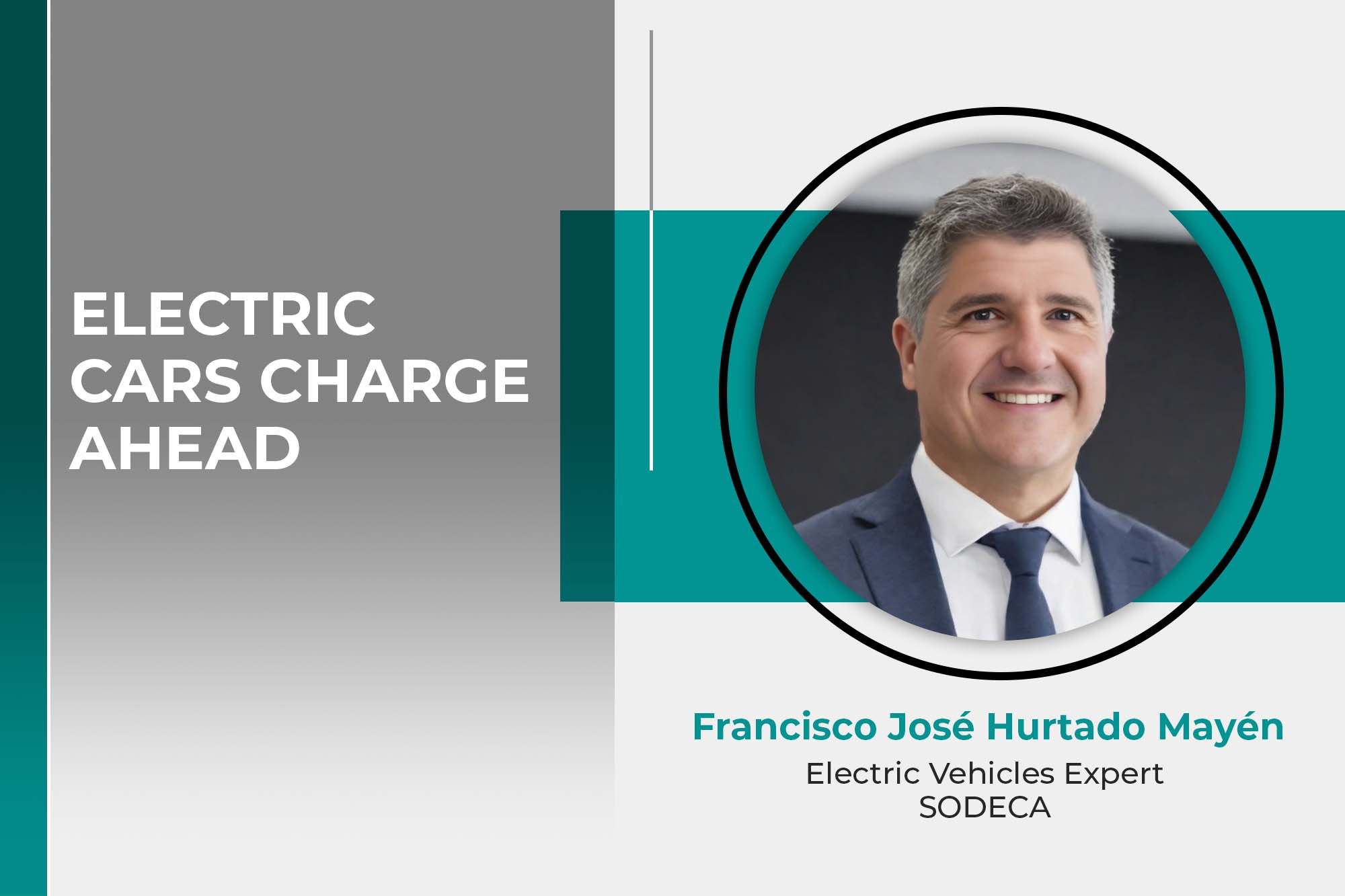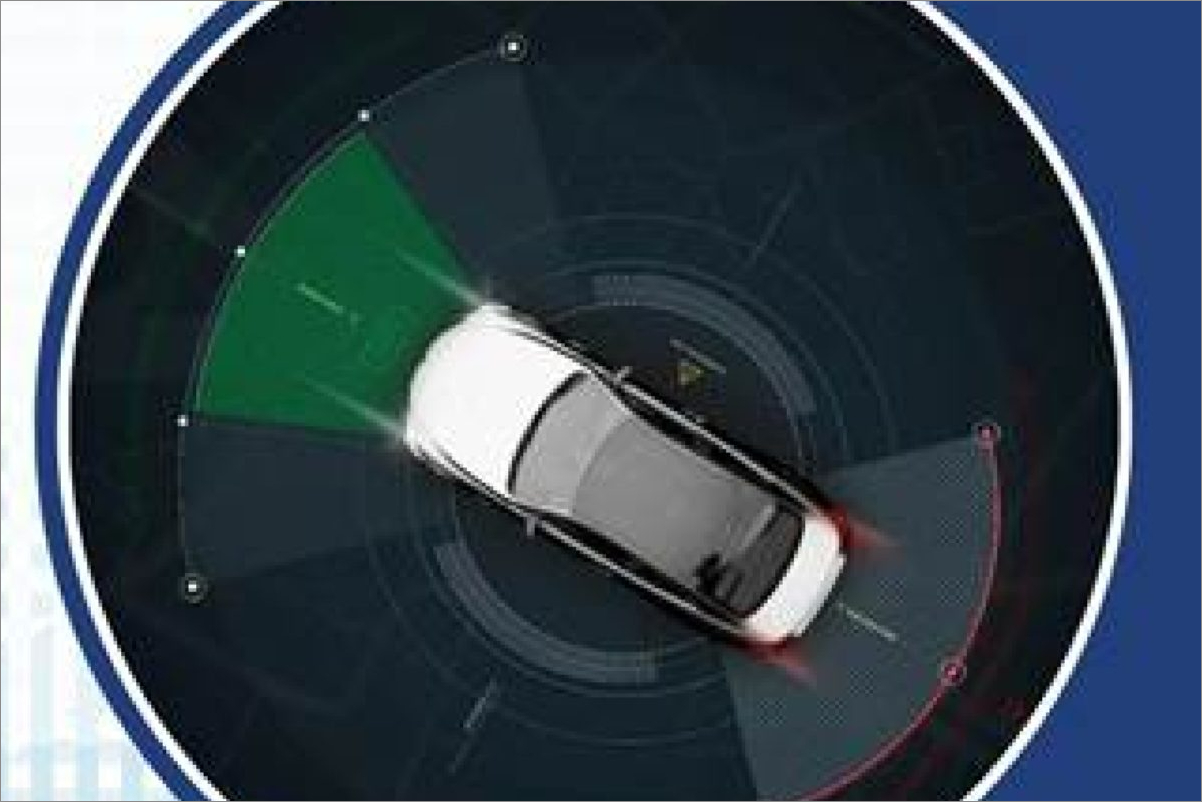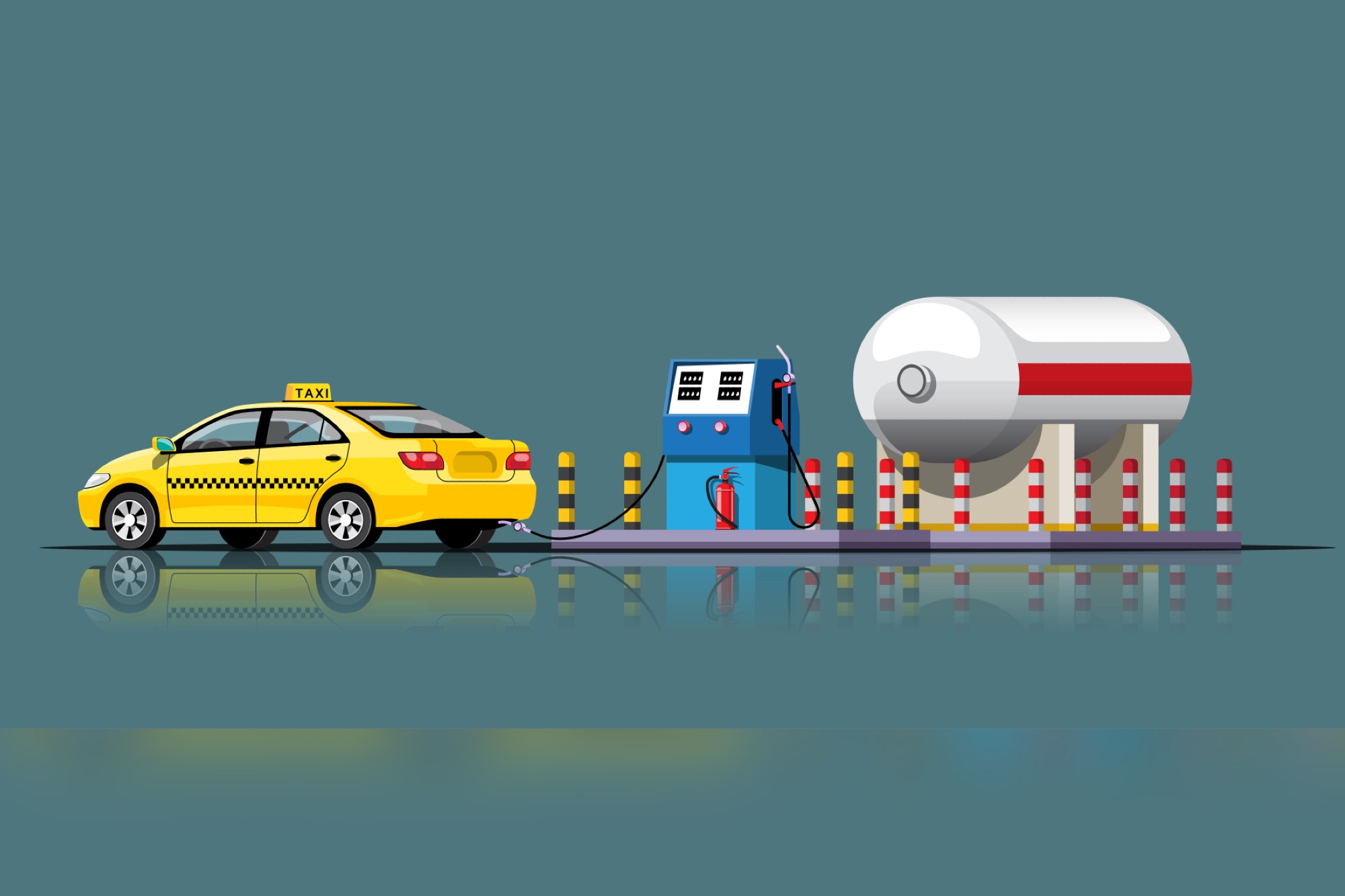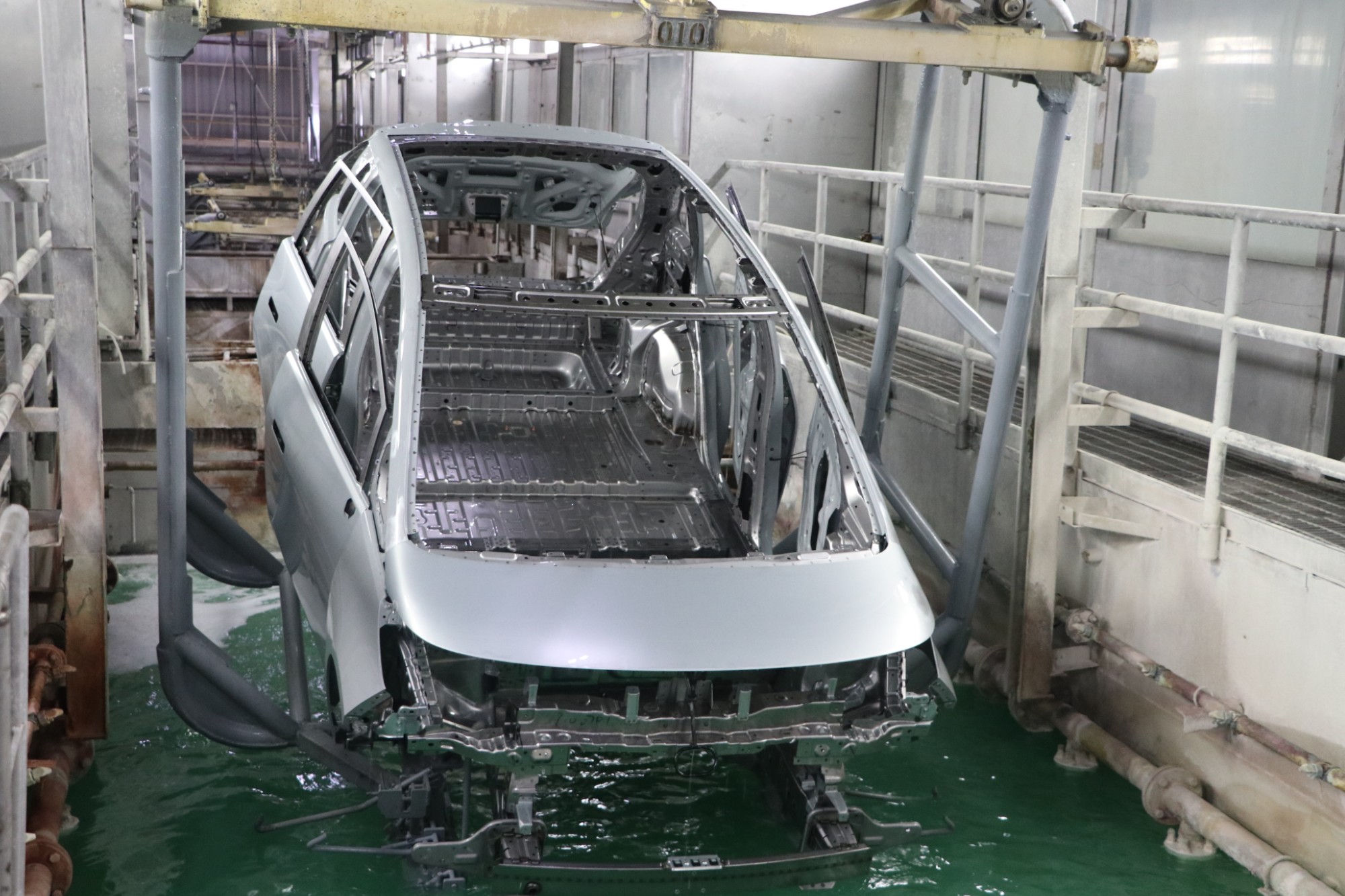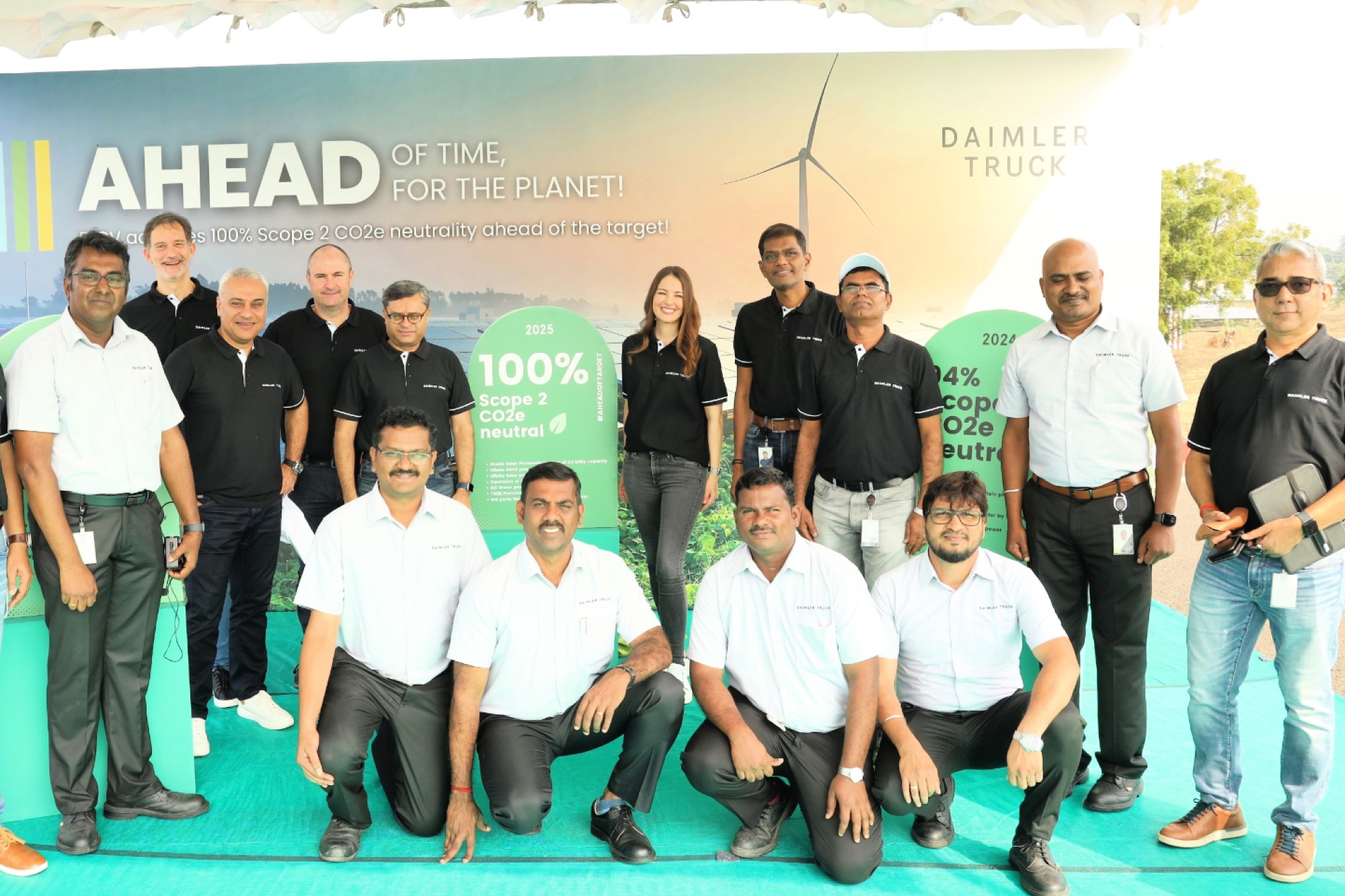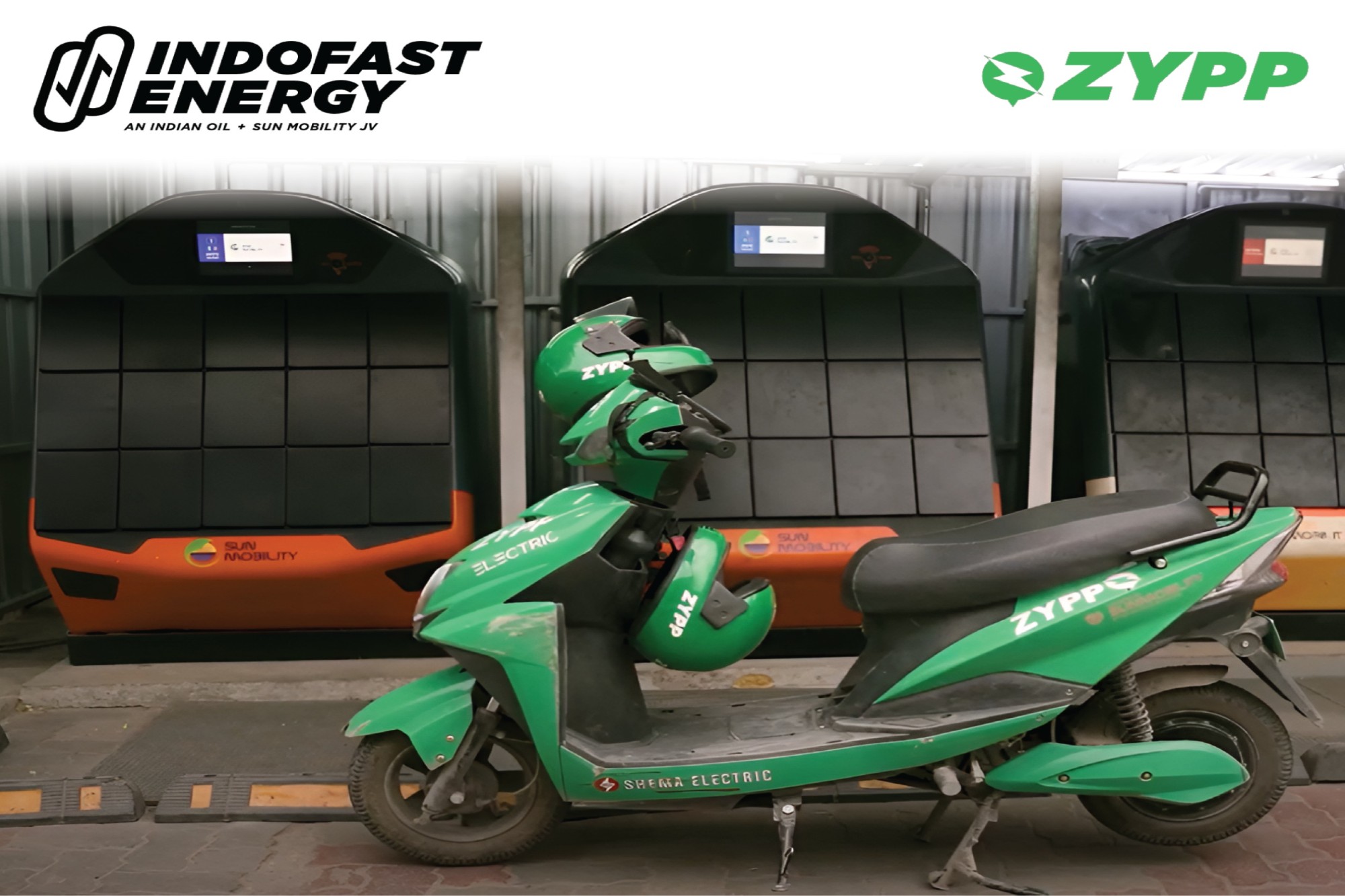Electric cars charge ahead
By OEM Update Editorial July 30, 2024 2:56 pm IST
Francisco José Hurtado Mayén, Electric Vehicles Expert, remarks that the electric car market in India is marked by rapid expansion and a dynamic landscape. It is driven by a confluence of factors, including environmental awareness, supportive government policies, and advancements in electric vehicle technology.
The electric car market in India is one of the fastest-growing segments in the automotive industry. According to recent reports, the market size was valued at approximately USD 1.4 billion in 2023 and is expected to grow at a compound annual growth rate (CAGR) of over 40 percent in the next five years. The number of electric cars sold in India is projected to increase significantly, driven by both demand and supply.
Key drivers of growth
Environmental concerns: Increasing awareness about the environmental impact of fossil fuels has led to a surge in demand for cleaner alternatives. Electric cars, with zero tailpipe emissions, are seen as a solution to reduce air pollution in urban areas.
Government initiatives: Various government policies and incentives, such as the Faster Adoption and Manufacturing of Electric Vehicles (FAME) scheme, offer subsidies and tax benefits to manufacturers and consumers, making electric cars more affordable.
Technological advancements: Continuous improvements in battery technology have enhanced the range, performance, and safety of electric cars. The development of fast-charging technology is also reducing the downtime required for recharging.
Cost reduction: Economies of scale and advancements in production processes are gradually reducing the costs of electric cars and their components, making them more competitive with conventional vehicles.
Consumer trends
Electric cars are becoming more popular among consumers because they are cheaper, supported by government policies, and better for the environment. Electric vehicles appeal especially to younger consumers and city residents. Moreover, the growing variety of electric cars with enhanced performance and capabilities is encouraging more people to buy them.
Competitive landscape
The competitive landscape of the electric car market in India is evolving rapidly. Established automotive companies are expanding their electric vehicle portfolios, while new entrants are also making their mark. Competition fosters innovation and leads to better product offerings that benefit consumers.
Market segmentation
The Indian electric car market is diverse and segmented based on several criteria, including vehicle type, price range, usage, and geographic distribution. Each segment has unique characteristics and appeals to different consumer groups. Understanding these segments is crucial for identifying market trends and opportunities.
Vehicle type
The market is categorised into three main types of electric cars: compact cars, sedans, and SUVs. Each category caters to different consumer needs and preferences.
Compact cars: Compact electric cars are popular for their affordability and suitability for urban commuting. These vehicles are designed for short to medium distances, making them ideal for daily use. Key models in this segment include the Tata Tigor EV and Mahindra eKUV100. These cars balance cost, range, and performance, appealing to budget-conscious consumers and first-time EV buyers.
Sedans: Electric sedans provide comfort, performance, and range. They are preferred by consumers looking for a more premium experience without compromising efficiency. Models like the Hyundai Kona Electric and MG ZS EV fall into this category. These sedans offer advanced features, longer driving ranges, and better performance metrics than compact cars, making them suitable for longer commutes and highway driving.
SUVs: The SUV segment in the electric car market is gaining significant traction due to the increasing consumer preference for spacious and versatile vehicles. Electric SUVs like the Tata Nexon EV and the upcoming Mahindra XUV400 are known for their build, advanced features, and superior driving range. This segment appeals to consumers prioritising space, safety, and higher ground clearance, making these vehicles suitable for diverse driving conditions, including urban, rural, and off-road environments.
Price range
Electric cars in India are available across a wide range of price points, catering to different economic segments of the population. This segmentation allows manufacturers to target diverse consumer groups based on their purchasing power and preferences.
Budget segment: Electric cars priced below INR 10 lakh fall into this category. These vehicles are typically compact cars designed for urban use. Their affordability makes them accessible to a larger segment of the population. Examples include entry-level versions of the Tata Tigor EV and Mahindra eKUV100.
Mid-range segment: Priced between INR 10 lakh and INR 20 lakh, this segment includes higher-end compact cars, entry-level sedans, and SUVs. Vehicles in this range offer better performance, longer driving ranges, and more features per the budget segment. The Tata Nexon EV and MG ZS EV are notable models in this category.
Premium segment: Electric cars priced above INR 20 lakh are considered premium models. These vehicles include high-end sedans and SUVs offering superior performance, luxury features and extended driving ranges. The Hyundai Kona Electric and future premium models from brands like Audi and Mercedes Benz are examples of this segment. These cars cater to affluent consumers looking for luxury and advanced technology.
Usages
Electric cars in India are used for personal use, commercial applications, and government or institutional use. Most electric cars in India are purchased for personal use. Consumers in this segment prioritise factors such as cost-effectiveness, environmental impact, and the convenience of charging. The growing awareness of environmental benefits and the availability of subsidies have significantly contributed to electric cars for personal use.
There is an increasing interest in electric cars for commercial purposes, including fleet operations for ride-hailing services, corporate fleets, and delivery services. Electric cars’ lower operational costs compared to conventional vehicles make them an attractive option for businesses looking to reduce expenses and enhance sustainability. Companies like Ola and Uber are gradually incorporating electric cars into their fleets.
Government agencies and institutions are also adopting electric cars as part of their efforts to promote sustainability and reduce carbon footprints. Various state and central government bodies are incorporating electric vehicles into their official fleets, setting an example for the public and supporting market growth.
Geographic DistributionThe adoption of electric cars in India varies across different geographic regions and is influenced by factors such as urbanisation, infrastructure availability, and regional policies. Major metropolitan cities like Delhi, Mumbai, Bangalore, and Chennai are leading in electric cars. The availability of better charging infrastructure, higher environmental awareness, and supportive local policies contribute to the higher penetration of electric cars in these areas. Urban consumers are more inclined to switch to electric cars due to the frequent use of personal vehicles for commuting and the increasing congestion and pollution levels in cities.
While adopting electric cars is slower in semi-urban and rural areas, there is potential for growth as charging infrastructure expands and awareness increases. State government initiatives aimed at rural electrification and the development of charging networks are expected to boost the adoption rates in these regions. The affordability and suitability of compact electric cars for short-distance travel make them appealing to consumers in smaller towns and rural areas.
Future Prospects
The future of the electric car market in India is promising, driven by several factors expected to contribute to its growth and development. Technological innovation will play a leading role in this growth.
Continuous improvements in battery technology, including improvements in energy density, charging time, and cost reduction, are expected to enhance the performance and affordability of electric cars. Solid-state batteries promise higher energy densities and faster charging times, and once they become commercially viable, they are likely to revolutionise the market.
Advancements in vehicle design and materials will contribute to more efficient and lightweight electric cars. Innovations such as aerodynamic designs, lightweight composite materials, and energy-efficient systems will improve overall vehicle performance and range.
Autonomous driving technologies and advanced connectivity features will enhance the appeal of electric cars. Autonomous driving can improve safety and convenience, while connectivity features offer real-time updates, predictive maintenance, and enhanced user experiences.
Government support and policy framework
Ongoing and consistent government support will be crucial for the sustained growth of the electric car market. The continuation and expansion of financial incentives and subsidies for electric car buyers and manufacturers will help bridge the cost gap with conventional vehicles. Policies that support domestic manufacturing and research and development will also boost the industry.
Implementing stringent emission regulations and fuel economy standards will encourage the adoption of electric vehicles. Policies such as zero-emission vehicle (ZEV) mandates and carbon credits can further drive market growth.
Government initiatives to expand and enhance the charging infrastructure will address range anxiety and make electric cars more convenient for consumers. Support for public and private investment in charging networks will be essential.
Market expansion and new business models
The electric car market is expected to expand, with new business models emerging to support its growth. Electric cars in commercial fleets, including ride-hailing services, delivery vehicles, and corporate fleets, will drive significant market growth. Fleet operators are likely to benefit from lower operational costs and government incentives.
Innovative business models, such as battery leasing and swapping, can reduce the upfront cost of electric cars and address concerns about battery lifespan and degradation. Companies offering these services will play a crucial role in market expansion.
Subscription-based models, in which consumers can lease electric cars monthly with inclusive services such as maintenance and insurance, will provide users with flexible and cost-effective options.
Increased consumer awareness and acceptance
Consumers are expected to switch to electric mobility with the increasing awareness and acceptance of electric cars. Continued efforts to educate consumers about the benefits of electric cars, available incentives, and charging infrastructure will drive this adoption. Real-world testimonials and success stories can help build confidence in electric vehicles.
Providing consumers with opportunities to experience electric cars through test drives and demonstrations will also dispel misconceptions and highlight the advantages of electric mobility.
As more automakers enter the electric car market and offer a wider range of models, consumers will have more choices that meet their preferences and needs. Increased competition will also drive innovation and lower prices.
Environmental and economic impact
The environmental and economic benefits of electric cars will further strengthen their adoption. They will reduce greenhouse gas emissions and air pollution, contributing to improved public health and sustainability. Electric cars can reduce India’s dependence on imported fossil fuels, which will positively impact energy security. Renewable energy sources for EV charging can further reduce the carbon footprint and promote sustainable energy use.
The growth of the electric vehicle industry will create new opportunities for economic development and job creation. The EV ecosystem will generate employment across various sectors, from manufacturing and R&D to charging infrastructure and maintenance services.
Global trends and collaboration
The global shift towards electric mobility will impact the Indian market. Trends such as the declining cost of batteries, technological advancements, and increased investment in EVs by global automakers will benefit India. Collaborating with international companies and governments can facilitate technology transfer, investment, and knowledge sharing. Partnerships in areas such as battery manufacturing, charging infrastructure, and R&D will accelerate the growth of the Indian electric car market.
The electric car market in India stands at a crucial juncture with an outlook of substantial growth and transformation. This report has explored the multifaceted aspects of this burgeoning market, offering a comprehensive analysis of its current state, key players, government policies, infrastructure developments, challenges, and prospects.
The transition to electric mobility is more than just a technological shift. It is to create a fundamental change in how transportation is perceived and utilised in India. This transition’s benefits are manifold: reduced greenhouse gas emissions, improved air quality, and economic growth. As India aims to meet its sustainability goals and reduce its carbon footprint, electric cars are a pivotal step in this direction.
Cookie Consent
We use cookies to personalize your experience. By continuing to visit this website you agree to our Terms & Conditions, Privacy Policy and Cookie Policy.



